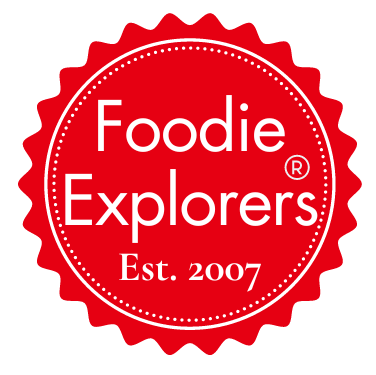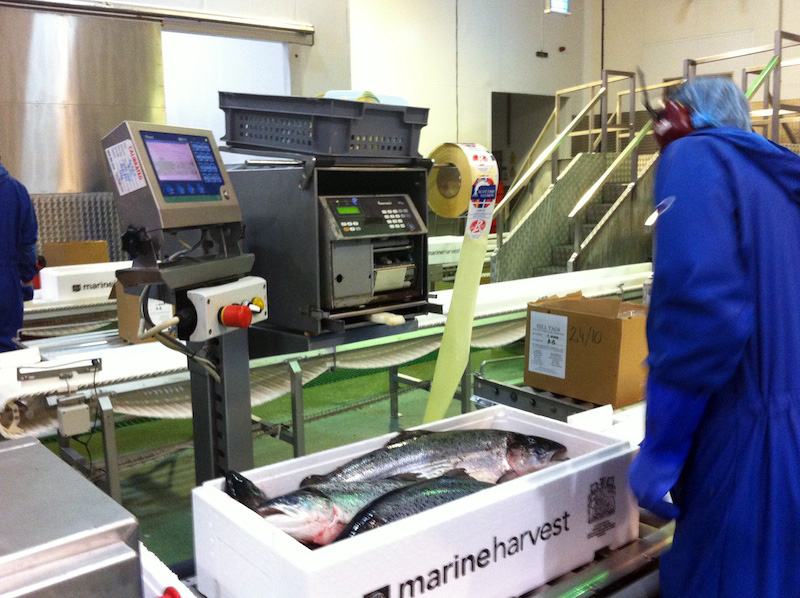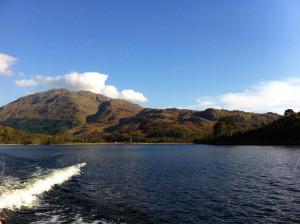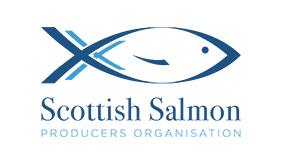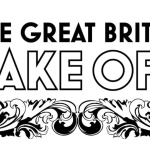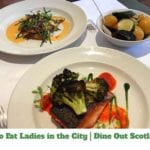One of the joys of loving food is finding out all about where your food is from and how it is produced. I was invited by Scottish Salmon Producers Organisation ( the body representing the country’s salmon farming industry) to visit Marine Harvest who are one of the country’s and the industry’s leading producers. It was a great chance to find out about the industry producing sustainable top quality salmon and Scotland’s number one export.
 I took a train up to Fort William on the West Highland Line, what beautiful surroundings to work in. Think I might be applying for a job here!
I took a train up to Fort William on the West Highland Line, what beautiful surroundings to work in. Think I might be applying for a job here!
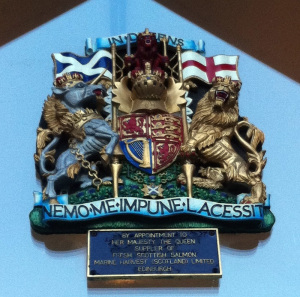
The day started in Fort William where Steve Bracken from Marine Harvest took us on a tour of the processing plant.
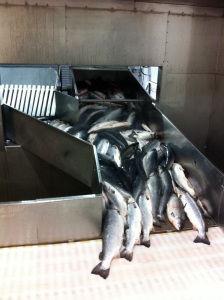
The salmon is delivered fresh in the morning from a night harvest to be processed. This involved gutting the fish, as well as grading and packaging for export and domestic markets.
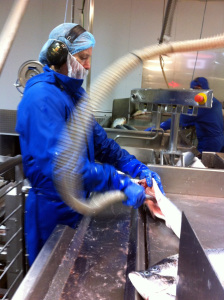
The fish is graded by hand as well as checked for quality. No machines involved here.
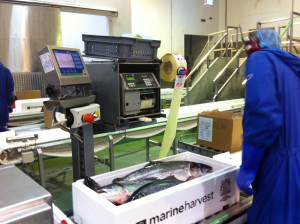 After the salmon is packed, they are re-checked for quality and labelled for distribution.
After the salmon is packed, they are re-checked for quality and labelled for distribution.
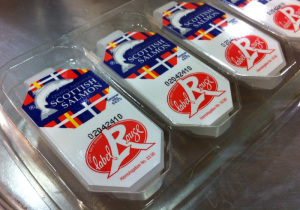
This includes checking quality of exports. Scottish Salmon was the first ‘non French’ product to be awarded the prestigious Label Rouge for superior quality and taste. (In addition to this, Scottish farmed salmon has been awarded European PGI, (protected geographical indication) placing it alongside Scotch Beef and Arbroath Smokies as products of distinct, regional characteristics.)
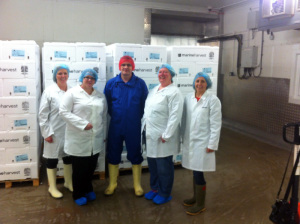
Cleanliness is a must here. Sanitised going in and out of the factory.
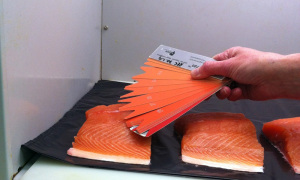
We also got a peek in at the lab. Learning about daily checks on quality and colour (who knew there were so many shades of salmon pink?!) as well as checks on possible contamination and all round monitoring of farms and plant.
It was then time to head off and visit some sites.
Beautiful Glenfinnan is one of the Marine Harvest sites. If you are visiting the area see if you can spot it, bet you can’t! I was surprised to see this here as I had never noticed any industry apart from tourism in the area. Hidden well in the nooks of the Loch.
The chaps here outlined their daily routine as well as how the salmon are cared for. I didn’t realise how much work went into rearing salmon, especially how often they get fed.
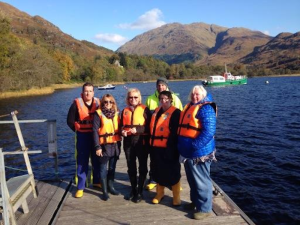 A pit stop for our fashion shoot.
A pit stop for our fashion shoot.
 We then headed to Ardnish, this was the original farming site back in the 60’s and is now a research station.
We then headed to Ardnish, this was the original farming site back in the 60’s and is now a research station.
Here Marine Harvest test feeds, and research methods to improve the salmon farming industry.
Loch Leven was our final destination.
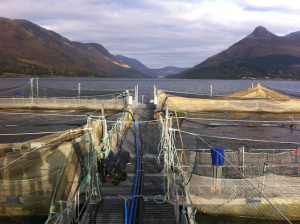 This farm manages a larger size of fish than Glenfinnan. The feed pipes here were huge and less frequent (as the fish have bigger bellies for keeping food in). At this site we could watch the fish from over water and underwater cameras from the comfort of the office, as well as being able to go out and watch the units on site.
This farm manages a larger size of fish than Glenfinnan. The feed pipes here were huge and less frequent (as the fish have bigger bellies for keeping food in). At this site we could watch the fish from over water and underwater cameras from the comfort of the office, as well as being able to go out and watch the units on site.
click here for information on stages in the life of a farmed salmon
For great recipes for cooking salmon and find out more about salmon farming by downloading the Marine Harvest App– itunes.apple.com/us/app/
As well as at 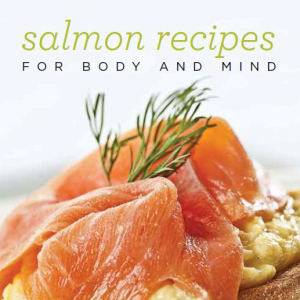 Salmon Recipes
Salmon Recipes
Many thanks to Scottish Salmon Producers and marine Harvest for hosting me on this trip.
